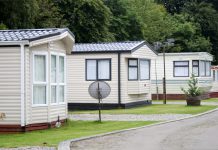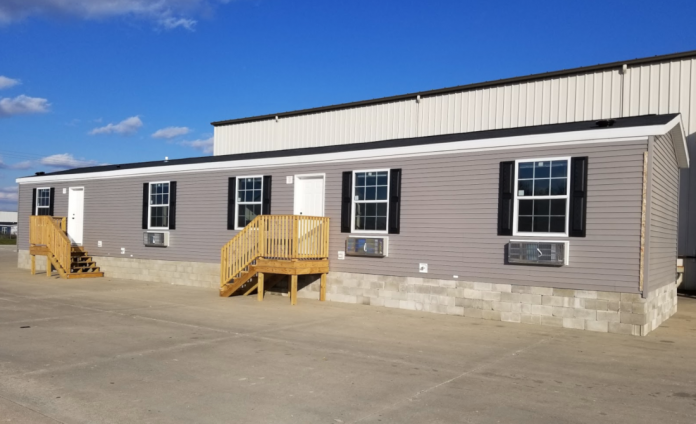
Duplexes for Workforce Housing Among Modular Homes Approved for Communities
Lengthy conversation between manufactured housing industry professionals in the upper Midwest and the state of Ohio Department of Commerce has resulted in a decision that allows for modular homes in manufactured home communities.
Tim Williams is the executive director for the Ohio Manufactured Homes Association.
“We recently met with the Department of Commerce, MH program and Industrialized Unit section to clarify the use of modular units inside of manufactured home communities,” Williams said. “It was determined that modular/industrialized units can be installed in communities as long as parks follow local and state guidance.”
Modular and modular duplex homes are allowed if the Industrialized Unit section of the Ohio Department of Commerce approves the home plan from the manufacturer.
Indiana Manufacturer Lays Modular Plans for Ohio Communities
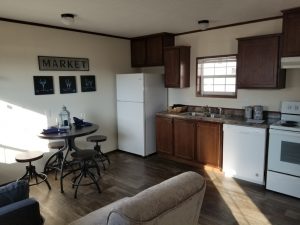
Adventure Homes, a manufacturer of HUD-code and modular homes, initiated the conversation in the state of Ohio about having modular homes in communities. Rich Rice, the general manager for Adventure Homes, said the company was interested in building duplexes for workforce housing.
However, the HUD code allows for only one residence per structure. With that in mind, the company moved to the concept of building modular duplexes within a HUD code envelope.
“You must use the state modular code in order to build a duplex,” Rice said. “Once we got approval to build state code duplexes, the obvious next move was to get mods approved for communities that also were reserved for HUD-code single-family homes.
“The duplex allows expansion of available affordable housing, such as workforce housing in already existing permitted communities,” he said.
Rice said the state of Minnesota also has approved modular homes in communities, and that similar talks are underway in Indiana.
Beyond the use of duplex homes, acceptance of modular homes in communities is important, Rice said, because it will create a greater depth of affordable housing for sale. Specifically, it’s quickly and easily expandable for workforce housing in markets where jobs have outpaced attainable housing.
“This is yet another new avenue to pursue affordable housing to meet the immediate need,” he said.
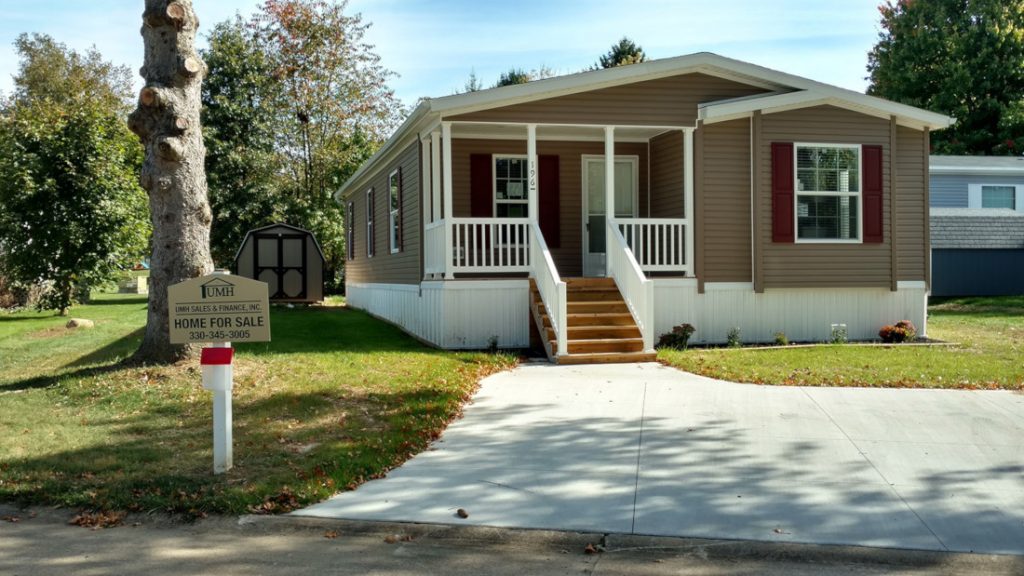
Elements of Ohio Basic Building Code Pertinent to Modular Home Approval for Communities
Modular homes are permitted in manufactured home communities under the following guidelines:
- The manufacturer’s plans for the modular homes are approved through the Ohio Board of Building Standards’ (BBS) Industrialized Unit Program.
- Modular homes are placed on a non-manufactured housing lot in a manufactured home park.
- The development plans for placing the modular home in the park are approved by the Ohio Department of Commerce Division of Industrial Compliance (DIC).
This compliance is assured by securing an IU plan approval. Permitting, plan review, and inspections of any site-built construction and installation would be performed by the local residential building department, if there is one, to ensure compliance with the OBBC.
Footings and foundations and any other site-built component work done on the industrialized unit, such as roofing, dormers, and garages, is not a part of IU approval. In the absence of a local building department, work must comply with the requirements of the Residential Code of Ohio/OBBC.
“Where there is a local building department, that building department would inspect the home foundation and other site-built features for a certificate of occupancy,” Williams said. “Setback requirements and lot spacing, along with any other spatial considerations, are required to comply with the park’s approved spacing requirements and setbacks.”
The manufacturer of the home is required to submit foundation designs for that specific home to the commerce department. Approved foundation designs will be used for local inspection and approval processes.
Owners Considering Modular Homes in Communities
A park operator considering the placement of a modular or manufactured home in Ohio will contact and notify regulating authorities prior to placement. Should there be any confusion with local building departments in particular cases, the industry is able to call on the Department of Commerce to provide clarification.
The commerce department and industrial compliance division will perform plan reviews and inspections to ensure compliance with the manufactured home park rules in Chapter 4781-12 of the Ohio Administrative Code.
Examples of what DOC/DIC May Examine:
- Lot drainage (O.A.C. 4781-12-06)
- Spacing and setbacks (O.A.C. 4781-12-08)
- Utility lines placement (O.A.C. 4781-12-13)
- Minimum recreation area (O.A.C. 4781-12-21)
Williams said the commerce department indicated its “scope of review” will be taken largely on a case-by-case basis. However, any review must include access to and consideration of complete plans for the entire community proposing a modular installation.
“So, if a park has not provided overall park development plans to DIC previously, it will need to do so when applying for plan approval on any modular home,” Williams said.
Under certain circumstances, regulatory overlap may occur. In such cases, placement of the modular home would be subject to regulations of both the local and state authorities. In the event of conflicting standards, the DIC should be informed and allowed to weigh in.
What Happens If A Local Jurisdiction Has No Local Building Authority?
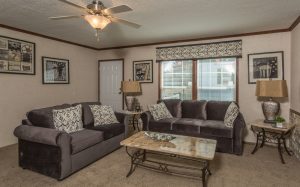
In the absence of a local building department, modular homes in communities would only need to comply with park spacing requirements with no further local inspection required. Regardless, duplex homes and single-section modular plans would need to be submitted to the Ohio Department of Commerce for “new development” approval.
In other words, adding a new lot, making changes to an existing lot, and/or placing a modular home on a lot in a manufactured home park would constitute “development” that requires plan approval by DIC.
The Ohio Department of Commerce asks that factory-built housing professionals be aware that other statutes, administrative rules, zoning restrictions, or other regulatory authorities may impact whether a specific modular home may be placed in a specific manufactured home community.
“Ohio Department of Commerce can only speak to the conditions in which a modular home may be placed in a manufactured home under the statutes and rules in the Manufactured Homes Program,” the commerce department indicated in its guidance. “Parks will need to check all applicable authorities having jurisdiction to determine if and how a modular home will be permitted in a manufactured home park.”
Additionally, the Department of Commerce manufactured housing inspectors will continue to have jurisdiction over the maintenance of the modular home lot as part of the overall community inspection process.
“Allowing modular homes and duplexes in manufactured homes parks can only serve to provide additional options for affordable housing,” Williams said. “With much of eastern Ohio in the midst of a shale boom, modular duplex homes can add much needed capacity for all the new jobs within the oil and gas industry and related business activity. The value of a park under such circumstances can also enhance the overall park portfolio value.”



